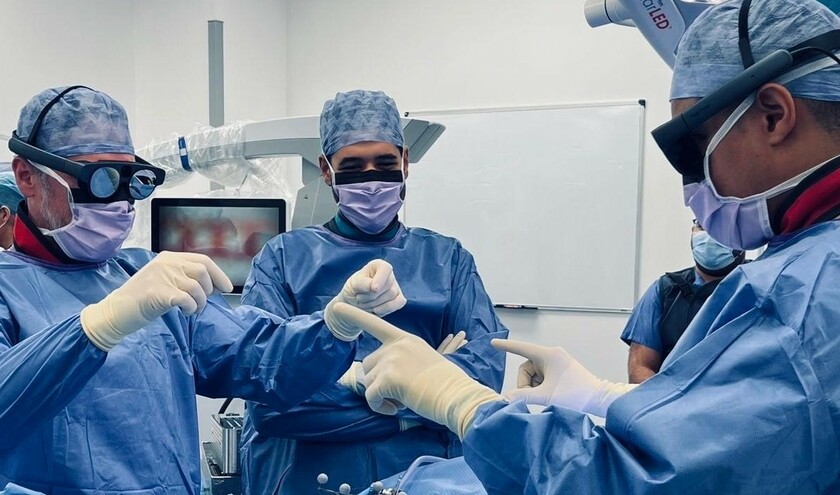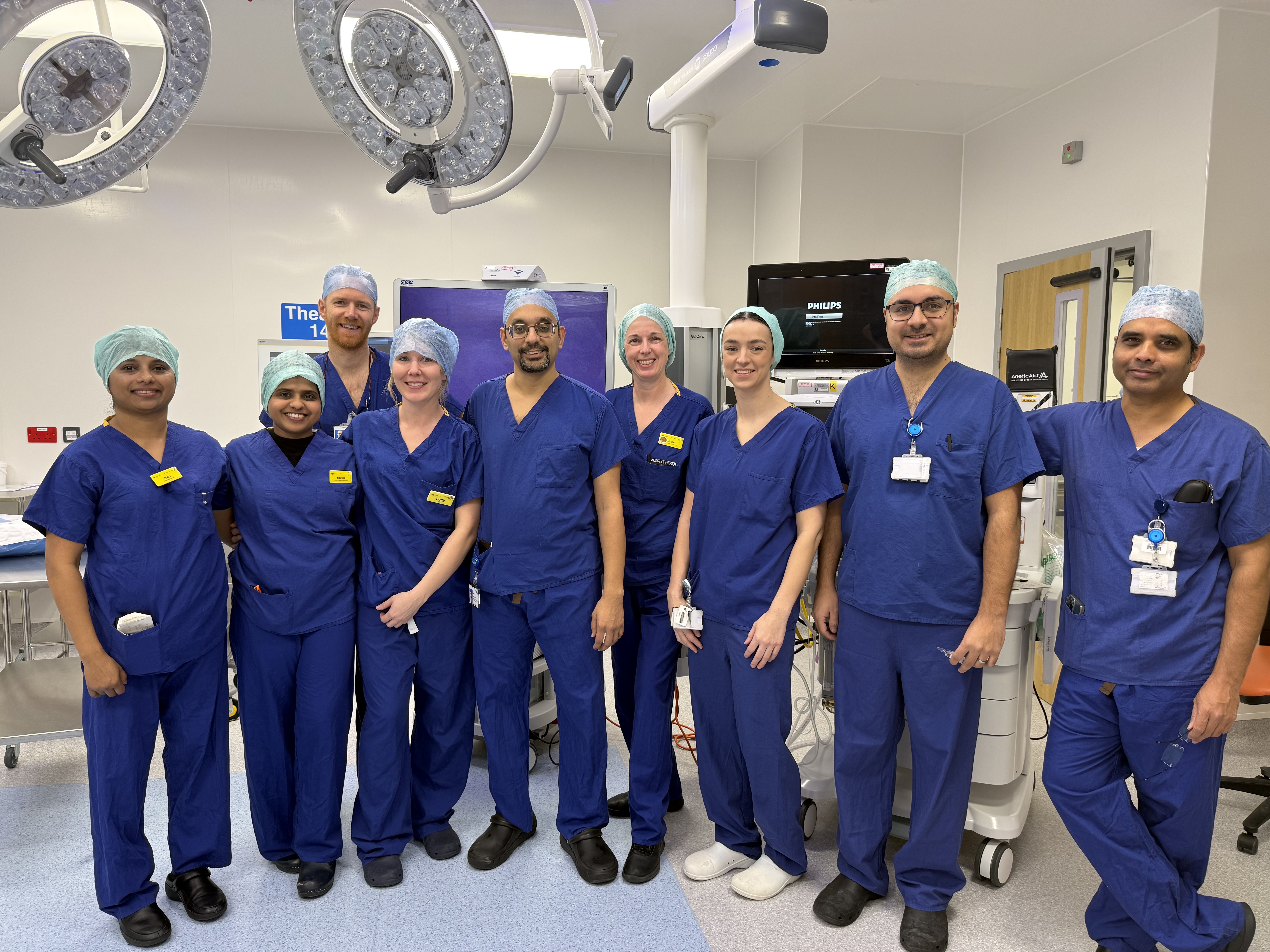The institute is operated by NHS Greater Glasgow and Clyde providing highly specialised care for patients throughout Scotland – and the fact the MR procedure took place there cements its place as an international centre of excellence and innovation.
The procedure involved a system called Spine Mixed Reality Navigation, as part of a trial in conjunction with manufacturer Brainlab.
The system takes current technology which fuses intraoperative X-rays with external images of a patient and, instead of a surgeon needing to look at a screen the images are relayed through MR goggles, giving an extremely accurate view of the patient's body and their underlying spinal anatomy.
Mohamed Abdelsadg, consultant neurosurgeon and complex spine surgeon, said: ‘The result is we are effectively able to see inside a patient's body while we are performing the operation.
‘This means the surgery is much more accurate, is much less invasive, and minimises surgical damage to other tissue.'
Mr Abdelsadg added: "We already do a lot of minimally invasive work using an earlier Brainlab system, so we were familiar with the set-up and this felt more like a software upgrade rather than a completely new system.
‘Also, the spinal neurosurgeons arranged for three days' training in the Institute's Teasdale simulation suite, which allowed us to familiarise ourselves with the kit. This meant the technical part of the operation went well.'
Susan Groom, director of Regional Services at NHS Greater Glasgow and Clyde, said: ‘The Institute for Neurological Sciences, and services across NHS Greater Glasgow and Clyde, are always looking to embrace innovations that are shown to improve outcomes for our patients.
‘I would like to thank the team at the Institute for their work during the trial, and express my appreciation to Brainlab for coming to us with this new equipment.'



